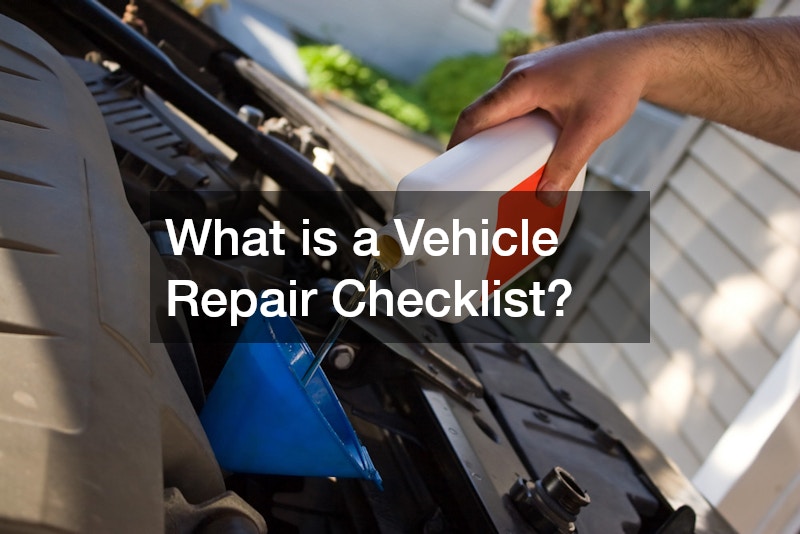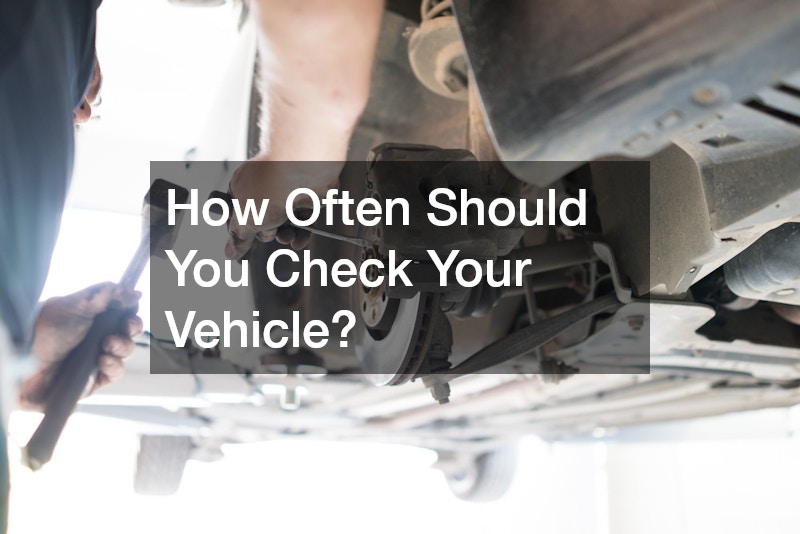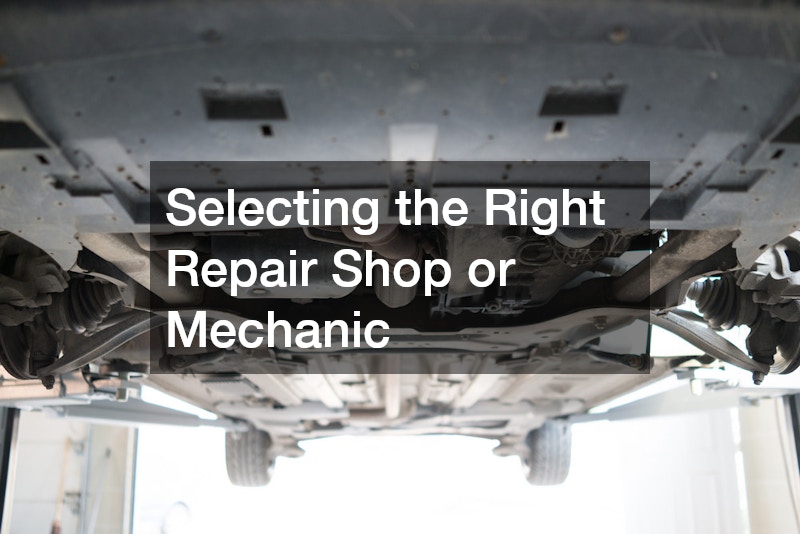Maintaining a vehicle repair checklist is crucial for ensuring the safety, reliability, and performance of any vehicle, whether it’s a daily driver or a classic car. Such checklists help vehicle owners stay organized and proactive about their vehicle maintenance needs, ultimately preventing larger repair costs and enhancing their driving experience. With routine inspections and timely repairs, drivers can avoid unexpected breakdowns and improve their vehicle’s lifespan, making a comprehensive vehicle repair checklist an essential tool for all car owners.
As vehicles are complex machines with various moving parts, a detailed checklist aids in identifying potential issues before they escalate into bigger problems. From routine oil changes to inspecting the brake system, every aspect needs attention. This article covers the essentials of a vehicle repair checklist, tips for establishing one, and the benefits it brings to vehicle maintenance and safety.
By systematically following a dedicated vehicle repair checklist, drivers are not only contributing to the well-being of their vehicles but also ensuring their safety and that of other road users. The guide will serve as a valuable resource, whether you are handling auto dent repair on your own or seeking professional help for complex issues. Therefore, keeping a detailed checklist is indispensable for responsible vehicle ownership.
What is a Vehicle Repair Checklist?

A vehicle repair checklist is a carefully curated list of tasks and components that should periodically be inspected, maintained, or repaired to keep a vehicle in optimal condition. This checklist covers everything from regular maintenance tasks such as oil changes to more specialized repairs like auto dent repair. By having a checklist in place, car owners can track what needs attention and ensure that nothing is overlooked.
An effective vehicle repair checklist should be tailored to the specific needs of a vehicle, taking into account the model, age, and usage of the car, whether it’s a BMW or a more general vehicle. Essential tasks on the checklist may include checks on the engine, transmission, suspension, and even cosmetic components like car wraps. This comprehensive approach ensures a complete assessment and management of the vehicle’s condition.
In addition to enhancing the vehicle’s performance, such a checklist also helps in adhering to legal standards and safety regulations. Whether one enlists the help of professional mechanics or performs DIY maintenance, the vehicle repair checklist serves as a thoughtful guide to manage and prioritize tasks efficiently.
How to Create a Comprehensive Vehicle Repair Checklist?
Creating a comprehensive vehicle repair checklist begins with a thorough understanding of your vehicle’s specific needs and the manufacturer’s recommendations. For instance, if living in an area prone to hail, ” car hail damage service” might top the list. It’s also essential to categorize tasks based on frequency, distinguishing between daily checks, monthly inspections, and annual assessments.
Gathering information from trusted sources, such as the vehicle’s manual, online forums, and professional advice, can assist in compiling a detailed checklist. Regular tasks might include monitoring tire pressure, checking fluid levels, and inspecting the brake system. Meanwhile, more specialized tasks, like checking for signs of rust or performing preventative maintenance, ensure nothing falls through the cracks.
Finally, it’s crucial to remain flexible, updating your vehicle repair checklist as new issues arise or as previous problems are resolved. Modern technology also offers digital tools and apps that can help organize and remind car owners of upcoming maintenance tasks.
Essential Tools Needed for Vehicle Repair
Having the right tools is essential for any vehicle repair, ensuring the tasks on your vehicle repair checklist can be effectively executed. Basic tools like wrenches, screwdrivers, and pliers form the foundation of any repair kit, allowing you to tackle general maintenance needs. For specific tasks, such as ” bmw repair,” specialized tools like torque wrenches or diagnostic scanners might be necessary to address complex vehicle issues.
Safety should always be a priority when working on a vehicle, making personal protective equipment like gloves, safety glasses, and sturdy footwear crucial components of any repair toolkit. Using quality tools reduces the risk of damage to your vehicle and minimizes the potential for personal injury. Ensuring the right tools are readily available encourages regular maintenance and makes emergencies more manageable.
For individuals who are not mechanically inclined, investing in a comprehensive tool set or toolbox that caters to the unique requirements of their vehicle type can be beneficial. This not only provides peace of mind but also prepares vehicle owners for tackling both minor and significant repairs.
How Often Should You Check Your Vehicle?

The frequency of vehicle checks can depend on several factors, including vehicle type, age, and mileage. While some components may need daily or weekly attention, like tire pressure and engine oil levels, others can be inspected less frequently. For instance, “car windshield replacement” might be a consideration following specific damage incidents or during an annual safety inspection.
Incorporating periodic inspections into your vehicle repair checklist is vital for catching potential issues early. For example, monthly checks might involve inspecting belts and hoses, while biannual inspections could include checking the battery health or replacing the cabin air filter. Each vehicle and driving situation is unique, which emphasizes the importance of customizing the checklist as per individual needs.
Following a structured schedule not only prevents unforeseen repairs but also extends the lifetime of the vehicle. It’s recommended to adopt a proactive approach, ensuring that both minor and major repairs are addressed promptly.
Common Vehicle Issues That Require Repair
Several common issues often necessitate attention, and it’s crucial to address them in your vehicle repair checklist. Problems such as worn brake pads, deteriorated spark plugs, or malfunctioning headlights can affect both the safety and performance of the vehicle. Prompt attention prevents these minor issues from escalating into major repairs, potentially avoiding the need for intervention from ” car accident law firms.”
Another frequently encountered problem is poor alignment, often resulting in uneven tire wear and reduced fuel efficiency. Regular checks should be included in the vehicle repair checklist to identify misalignments early. In addition to these mechanical issues, external imperfections like dents or scratches might require auto dent repair or touch-up paint to maintain the vehicle’s exterior integrity.
Finally, the vehicle’s electrical system, including the battery and alternator, should be routinely checked to avoid unexpected breakdowns. These systems are crucial for starting the vehicle and powering electrical accessories, making their proper function essential.
DIY vs. Professional Vehicle Repairs
When it comes to vehicle repairs, vehicle owners often face the decision of conducting DIY repairs or seeking professional services. While DIY repairs can save money and offer flexibility, they require a certain level of mechanical knowledge and the right tools. For tasks like general maintenance or “recreational vehicle repairs,” experienced DIY enthusiasts might feel comfortable handling the work independently.
However, some tasks are best left to professionals, especially when specialized equipment or expertise is needed. Complex repairs or diagnostics, such as engine tuning or electronic system evaluations, benefit from a professional’s expertise to ensure precise and effective outcomes. A vehicle repair checklist can help identify which repairs one can confidently tackle, directing more complicated jobs to a reliable mechanic.
Ultimately, balancing DIY with professional repairs can optimize costs and ensure high standards of maintenance. Vehicle owners should assess their skill level and resources, deciding based on the potential risk and complexity of the task at hand.
Tips for Maintaining Your Vehicle in Top Condition

Regular maintenance is key to keeping your vehicle in peak condition, and a vehicle repair checklist is an excellent tool to ensure all essential tasks are managed. Simple practices, such as adhering to the manufacturer’s maintenance schedule and promptly addressing minor issues like scratches with car wraps, can prevent more significant problems. Consistent attention to detail aids in prolonging the vehicle’s life and preserving its resale value.
Keeping your vehicle clean, both inside and out, can surprisingly contribute to its longevity. Dirt and grime can cause rust and wear over time, damaging the vehicle’s paint and components. Regular washing and waxing protect the surface, while a tidy interior prevents wear and tear, making cleanliness an integral part of vehicle care.
Additionally, paying attention to driving habits can impact a vehicle’s condition. Gentle acceleration, careful braking, and avoiding overloading can reduce stress on various components, reducing the need for repairs.
How to Manage Vehicle Repair Costs?
Managing vehicle repair costs begins with a proactive approach to maintenance, as avoiding or postponing minor repairs can lead to more expensive fixes down the line. Utilizing a comprehensive “vehicle repair checklist” allows car owners to track and budget for routine maintenance, preventing minor issues from developing into costly repairs. Additionally, comparing quotes from multiple repair shops can help identify affordable yet reliable services.
Another strategy for cost management is to invest in preventive maintenance, which can include services from local ” tow truck services” to tackle roadside problems before they lead to major repairs. Regular inspections and maintaining fluid levels, like oil and coolant, can avert significant mechanical failures. This proactive mindset ensures that you’re not only safeguarding your car’s health but also your finances.
Finally, having an emergency fund dedicated to unexpected vehicle repairs provides a financial buffer during unforeseen automotive issues. Saving a small amount monthly can culminate in a significant reserve over time, offering peace of mind.
Understanding Vehicle Safety Checks
Vehicle safety checks are an integral part of owning and operating a vehicle, playing a critical role in ensuring its safe functioning. Performing these checks regularly and incorporating them into your vehicle repair checklist helps identify potential hazards such as faulty brakes or worn-out tires. By addressing issues promptly, vehicle owners can prevent accidents and reduce their reliance on services like a ” towing company.”
One should consider safety inspections as non-negotiable routines, particularly for older vehicles or those used for long-distance travel. Key components to examine include lights, brakes, steering systems, and seatbelt functionality. By consistently checking these vital elements, drivers can mitigate risks and enhance their confidence on the road.
A sustained commitment to carrying out comprehensive safety checks ensures that the vehicle remains compliant with legal standards and performs optimally. Such diligence not only contributes to personal safety but also upholds the well-being of other road users.
Selecting the Right Repair Shop or Mechanic

Selecting the right repair shop or mechanic is essential for ensuring your vehicle receives the highest-quality service. When assessing potential options, it’s beneficial to consider factors such as certification, experience, and customer reviews. A well-regarded repair shop that values transparency and accuracy can greatly assist in addressing items on your vehicle repair checklist.
Pricing should also be a consideration, ensuring services align with your budget without compromising quality. When looking into services for repairs or routine maintenance, evaluate shops that offer recommendations regarding necessary parts and services, such as ” trailer parts.” Building a good relationship with your mechanic can lead to a mutual understanding of your vehicle’s needs and priorities.
Ultimately, choosing a reliable, knowledgeable professional can make all the difference in vehicle maintenance and repair. A trustworthy mechanic delivers not just quality service but also offers invaluable advice and guidance for keeping your vehicle functioning at its best.
Importance of a Vehicle Repair Checklist
In summary, a comprehensive vehicle repair checklist is indispensable for maintaining the safety, reliability, and longevity of any vehicle, regardless of type. Such a checklist ensures that vehicle owners can proactively monitor and handle the various maintenance tasks that are essential for optimal performance. Addressing everything from standard upkeep to specific needs like auto dent repair or car windshield replacement, it offers a structured approach to vehicle care.
By integrating a detailed vehicle repair checklist into regular maintenance routines, owners not only enhance their driving experience but also safeguard against unexpected repairs and expenses. Furthermore, a vehicle repair checklist fosters an understanding of common issues, differentiating between DIY-friendly tasks and those that necessitate professional intervention. This balance aids in cost management and ensures that repairs are conducted effectively and efficiently.
Ultimately, the diligence and attention prompted by a vehicle repair checklist contribute significantly to extending a vehicle’s life. In this way, being organized and attentive to maintenance builds a foundation for safe, enjoyable driving while also affirming a commitment to responsible vehicle ownership.
